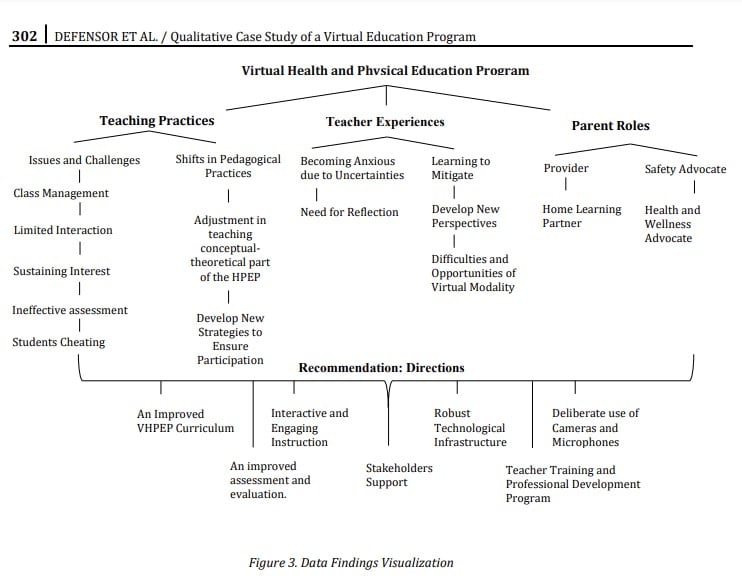A virtual health and physical education program during COVID-19 struggled with low student engagement and ineffective online assessment
10 Jun 2025

The study explored a virtual health and physical education program implemented during COVID-19 school closures. It centered on practices, teacher experiences, parental involvement, and potential improvements. Using a qualitative case study approach, researchers interviewed 10 teachers and ten 10 parents. Identified challenges were limited student interaction, difficulties in maintaining engagement, ineffective online assessment methods, and instances of student cheating. Teacher participants responded by adapting their pedagogical practices to the virtual format, developing strategies to boost participation, addressing personal anxieties about online teaching, and engaging in self- reflection to improve their skills. The study also highlighted how parents played a crucial role in supporting their children and teachers, emphasizing the collaborative nature of virtual education. The researchers, however, noted that their findings are context-specific and may not be generalized.
This research holds significant value for the field of education and socio-cultural dynamics. By exploring the teaching practices, experiences, and challenges of teachers implementing a virtual education program during the COVID-19 pandemic, this study contributes to the growing body of knowledge on educational adaptations in crisis and experience-context-based studies. The study may: (1) enrich understanding of teachers’ resilience, (2) present family dynamics in education, (3) inform policy and practice in education, (4) provide a qualitative perspective on educational challenges, and (5) contribute to the discourse on digital divide and educational equity.
Authors: Marshal C. Defensor (Prince Sultan University), Ruby I. Defensor (Prince Sultan University) and Christopher Yap Wright (University of the Philippines)
Read the full paper: https://pdf.eu-jer.com/EU-JER_13_1_297.pdf
